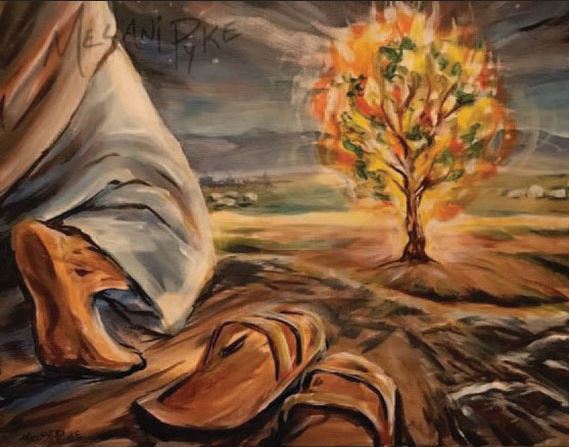Azadi ka Amrit Mahotsav Kolkata event honours four Clergymen
Pope Francis asks businesses to support working women: They’re ‘afraid to get pregnant’
Study: Christianity may lose majority, plurality status in U.S. by 2070
Indian politician declines Magsaysay Award under party pressure
Like John Paul II, Pope Francis heads to Kazakhstan during time of war

Jacob Chanikuzhy
Reputed firms generally select their prospective employees from the professional colleges through campus interviews. They want the most competent young people with the most advanced knowledge and training, energy and enthusiasm. No one would think of recruiting someone who has left the campus for long and has not had any experience in his profession ever since. But, God of Israel is quite different. And, it is evident from the way he chose Moses to liberate the Hebrews from Egypt. For forty years Moses lived as a prince in the palace of Pharaoh, trained in Egyptian knowledge, culture and wisdom. At forty, he left the palace of Pharaoh. Fresh from the Egyptian royal court, Moses would have made a great leader for the Israelites, had God called him then and there. But, God did not. Moses had to flee to Midian and live there for the next forty years, not as a military leader but as a humble shepherd. In this forty long years, almost everyone in Egypt, both the Egyptians and the Hebrews, must have forgotten him, but not God. God called Moses for an epoch making task when Moses was eighty years old!
The task assigned to Moses was to liberate the slave community of the Hebrews from Egypt. The context of God’s call of Moses was the misery of the Hebrews and their heart wrenching cry to their God (Ex 2,23-25). It is remarkable that the people did not patiently wait for the intervention of God. They did not pacify themselves thinking that God knew it all and would intervene on their behalf at the most appropriate time. They also did not hush up their complaints fearing the wrath of the king or the displeasure of the deity whose representative the king claimed to have been. They believed that they had the right to cry aloud against the abuses and the oppression they were subjected to. They were right in voicing their protest; God heard their cry, saw their misery and decided to act in favour of them.
When God decided to liberate the Hebrews from Egypt, God chose Moses to materialize his plan. He called Moses from the midst of a burning bush (Ex 3,1-6). We do not know why God talked to Moses from a burning thorn bush. Though the bush was on fire it did not burn to ashes. Was it the symbol of the Hebrews themselves who were undergoing the fire of oppressions, and nevertheless survived and even flourished? If so, God’s voice from the midst of the burning bush would symbolize the presence of God in the midst of his suffering people. Or was the burning bush the symbol of the God of Israel himself? Of course, in the Bible, God is referred to as a consuming fire (Ex 24,17; Dt 4,24) who consumes the holy sacrifices and also destroys the wicked.
From the burning bush, God reminds Moses about his holiness (Ex 3,5). God’s subsequent speech reveals the cares and concerns of a holy God. As the holy God, he cares about his people and is concerned about their sufferings. In his holiness he decides to free the oppressed people from their bondage and to lead them to a land of abundance. It shows that God’s holiness is inextricably connected with justice. As the consuming fire, the holy God is intent on destroying all evil and injustice. Thus, God decides to descend on the earth to execute justice.
By deciding to come down to the midst of the people, God however, does not talk directly to Pharaoh or to the people. Rather, he calls Moses and assigns to him the task of talking to Pharaoh and liberating the people. The holy God of Israel, in his zeal to do justice to his people needs someone to act on behalf of him. He could have very well intimidated Pharaoh and forced him to liberate the Hebrews. But, God did not choose to do so. Rather, he chooses someone and insists him to talk to the insolent ruler and to bring justice to his people. This is not an old story of an archaic God’s outdated way of doing things. The holy God of the Bible still looks for leaders to confront unjust rulers and systems and to establish a more humane and just society in response to the cry of the oppressed.
Leave a Comment